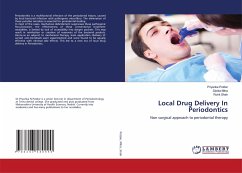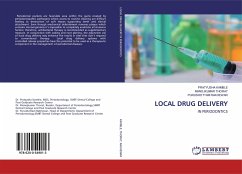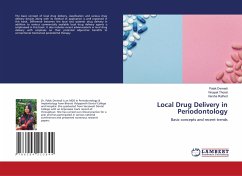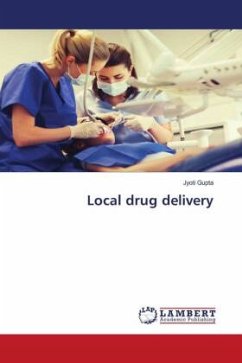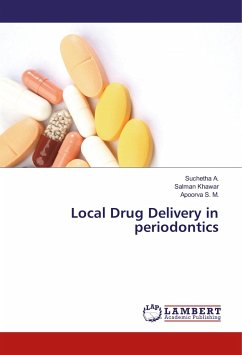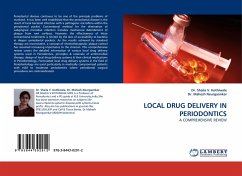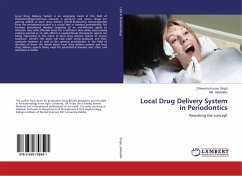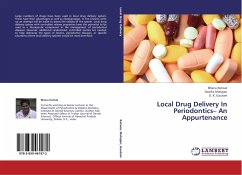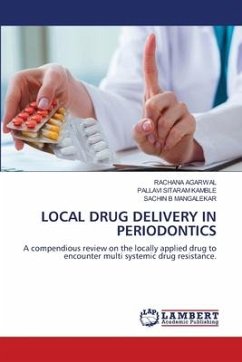
LOCAL DRUG DELIVERY IN PERIODONTICS
A compendious review on the locally applied drug to encounter multi systemic drug resistance.
Versandkostenfrei!
Versandfertig in 6-10 Tagen
53,99 €
inkl. MwSt.

PAYBACK Punkte
27 °P sammeln!
Systemic administration of antimicrobial agents produces therapeutic concentration at the site of infection, but for short periods of time. Invariably, forcing the use of repeated doses, for a prolonged period results in drug toxicity and acquired bacterial resistance. In such cases, local drug delivery systems play a major role in the management of periodontal diseases. Irrigating systems, fibers, gels, strips, films, microparticles, nanoparticles, and low-dose antimicrobial agents are some of the local drug delivery systems (LDDS) available in the field, which aim to deliver antimicrobial ag...
Systemic administration of antimicrobial agents produces therapeutic concentration at the site of infection, but for short periods of time. Invariably, forcing the use of repeated doses, for a prolonged period results in drug toxicity and acquired bacterial resistance. In such cases, local drug delivery systems play a major role in the management of periodontal diseases. Irrigating systems, fibers, gels, strips, films, microparticles, nanoparticles, and low-dose antimicrobial agents are some of the local drug delivery systems (LDDS) available in the field, which aim to deliver antimicrobial agents to sub-gingival diseased sites with minimal or no side-effects on other body sites. The efficacy of several local delivery devices which are either commercially available or are Food and Drug Administration (FDA) approved are discussed in detail. And assessed regarding their functional characteristics, effectiveness as a monotherapy, as compared to scaling and root planing, and ability to enhance conventional therapy. Ultimately, protecting the patients from the adverse effects of systemic administration. Hence, this book focuses on the current state of LDD applications in periodontics.



